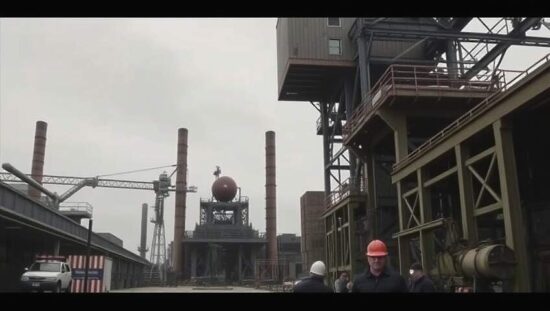The German steel industry is demanding decisive action from Chancellor Olaf Scholz and his government during a crucial summit scheduled for Thursday, with the newly appointed CEO of Thyssenkrupp Steel Europe, Marie Jaroni, leading the charge. Jaroni, responsible for the livelihoods of 26,000 employees, has emphasized the urgency of the situation, stating the summit “must deliver concrete results” to safeguard the future of German steel production.
The core of Jaroni’s demands centers around bolstering European trade protections against what she describes as a flood of unfairly priced steel imports, particularly from Asia. While the European Union is considering measures to halve the volume of duty-free imports and double the tariff rate to 50% on excess imports, Jaroni insists that Berlin must actively and unequivocally endorse these plans. “Brussels and Paris are waiting for a signal from Berlin” she asserted, highlighting the critical role Germany plays in influencing EU trade policy. This pressure reflects a broader concern that Germany’s hesitancy could undermine the EU’s ability to effectively counter global steel overcapacity.
Beyond trade protections, Jaroni’s critique extended to domestic energy costs, a significant competitive disadvantage for German industry. She is advocating for the swift implementation of an industrial electricity price, arguing it’s essential not just for large corporations like Thyssenkrupp, but also for the backbone of the German economy: its SMEs. The current cost of electricity, including network charges, remains significantly higher than in competitor nations like France and the United States, contributing to a gradual process of deindustrialization. A capped rate of five cents per kilowatt-hour is deemed necessary to ensure competitiveness.
Finally, Jaroni proposed leveraging the state’s considerable purchasing power to favor domestically produced steel. She specifically calls for tying requirements to the use of EU steel within the vast infrastructure investment packages currently being planned. This approach, she argues, would prevent German taxpayer money from indirectly subsidizing foreign steel producers, primarily in Asia, while simultaneously creating demand for German and European steel. The proposal exposes a fundamental tension between Germany’s commitment to free trade and the need to protect a strategically vital industry facing existential threats.





